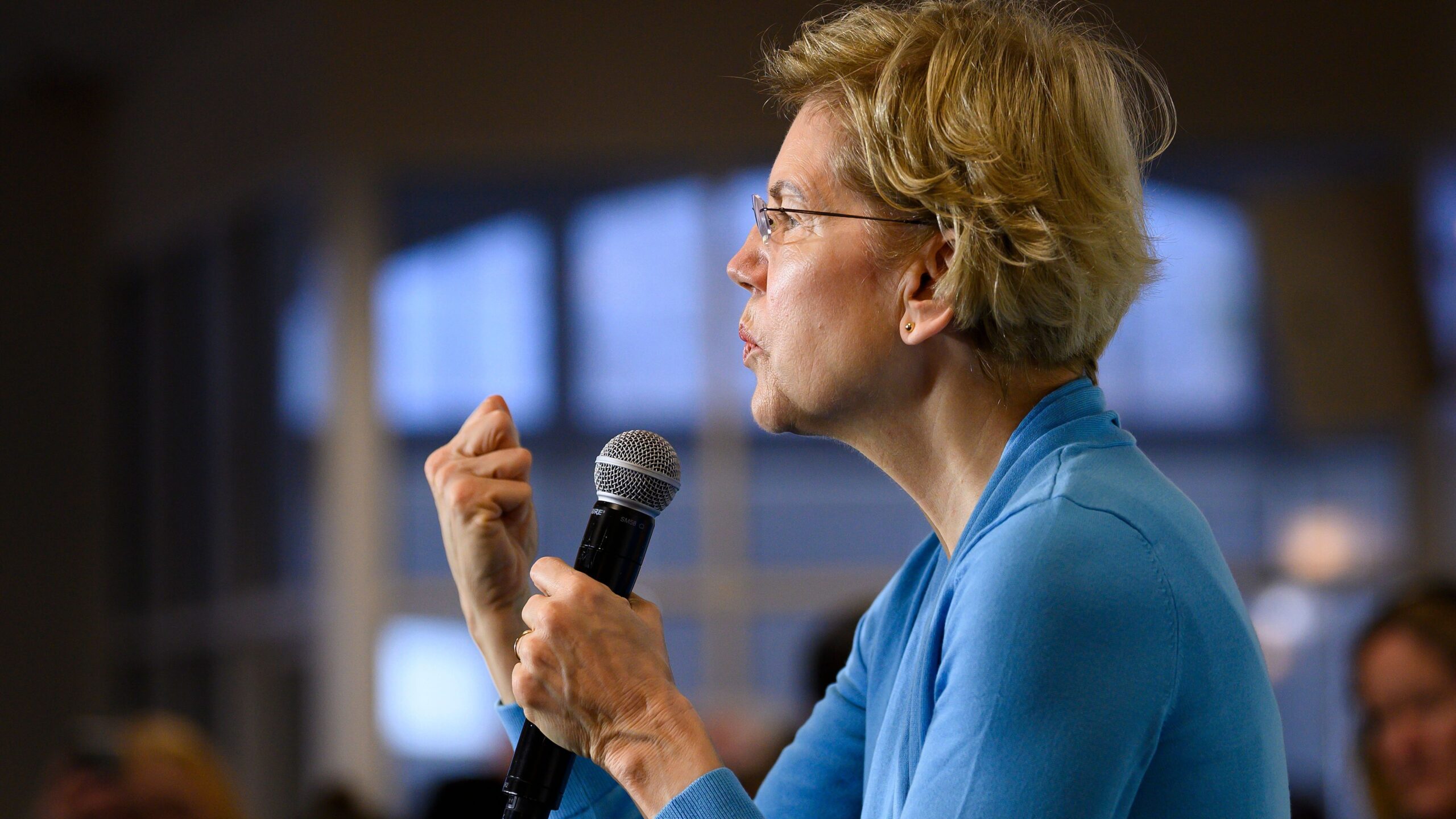One of a series of reports looking at Joe Biden’s potential running mates
Many progressives are loudly calling for Joe Biden to pick Elizabeth Warren as his running mate. They insist the liberal senator, who’s long been a darling of the left, would help the presumptive Democratic nominee win over skeptical young voters.
But Warren is a 71-year-old white woman from Massachusetts. And for months, Biden, 77, has been facing growing demands to choose a Black woman as his running mate. Those demands have only increased as widespread protests against racial injustice have swept the country following George Floyd’s death in police custody.
These competing preferences are seen as bolstering the cases both for and against Warren as a possible vice presidential choice.
Biden has said he intends to announce his running mate in about a month. These days, he says, his VP selection committee is vetting candidates through “deep background checks that take anywhere from six to eight weeks.” And Warren keeps emerging as one of the serious contenders for the role. In fact she now may be the only serious white contender on a shortlist now thought to be dominated by women of color.
“She knows how to govern”
People who admire Warren say she’s one of the sharpest policy minds the Democratic Party has — a progressive who also knows how to get stuff done. Her own failed presidential bid was characterized by its detailed policy plans on everything from taxes to childcare to health care. Shortly after she dropped out of the presidential race, Biden endorsed her bankruptcy plan — which was notable, because years ago the two had famously clashed over bankruptcy reform.
Warren supporters say she also has the right experience to govern the country in the midst of an economic crisis, which Biden would likely inherit if he wins in November.
They point to her work setting up her brainchild, the Consumer Financial Protection Bureau, in the wake of the Great Recession.
“She was the one who put together this new agency under kind of great pressure, and it was what we call building the plane while you’re flying it. She didn’t have a year to set it up and then it went into effect; it went into effect immediately,” said former Massachusetts Rep. Barney Frank, who co-authored the Dodd-Frank Act, a major piece of legislation following the financial crisis that created the CFPB.
In Frank’s view, Warren is more pragmatic than people realize.
“She knows how to govern. I worked closely with her on the financial reform bill,” he said. And despite the 2005 public spat between Warren and Biden over bankruptcy, Frank said that when they were crafting the Dodd-Frank bill several years later, “there was no difference between them.”
These days, Warren and Biden speak regularly, according to people familiar with their relationship.
And while some Democratic leaders and voters are nervous that Warren’s progressive streak might scare off more moderate voters, especially in the Midwest, Frank says the ideological differences between Biden and Warren are “irrelevant” because of political constraints, particularly if Republicans maintain control of the Senate.
Which is why, he believes, Biden’s VP decision will not come down to ideology.
“The second-biggest problem in America is economic inequality and [Warren] is best at dealing with it,” he said. “On the other side, the first-biggest problem in America is and has been for 300 years race and racism.”
“If you’re Black you lived it”
Frank didn’t exactly finish his thought on how Warren might be equipped to deal with that problem. But many Democrats feel Warren is probably not the best candidate to deal with structural racism.
In late April, more than 200 Black female leaders in the Democratic Party signed an open letter to Biden, urging him to select a Black woman as his running mate.
“I believe it will energize Black voters in the numbers that we need, and we can’t take anything for granted in this election,” said Karen Finney, an adviser to Hillary Clinton’s 2016 presidential bid who signed the letter.
Finney and other Black women who signed on are quick to point out their letter was not meant as a “criticism” of Warren; they personally like her work in the Senate and think she’s smart and capable. But they would prefer a Black woman who understands housing, policing and health care inequities.
“Having someone on the ticket who has those experiences, who can speak to the disparities not because of what they read or because of what they’ve studied, but because of what they’ve experienced in their lives and in the lives of the communities from which they come, brings an entirely different perspective to help the vice president’s candidacy,” said Leah Daughtry, a longtime Democratic Party official who also signed that letter.
Finney feels similarly.
“That’s not to say if you’re not Black, you can’t empathize with what we’re talking about, but I think if you’re Black you lived it — and there’s a difference,” she said.
For her, part of this decision is about about representation.
But many progressive Black voters are skeptical of that focus.
“Representation is important, but it can’t only be about representation,” said Maurice Mitchell, the national director of the Working Families Party, a progressive group that endorsed Warren for president. “Like, if you’re a former law enforcement officer, if you’re a former prosecutor, then we need to look at your record.”
Mitchell was indirectly referring to some of the Black women in the running for Biden’s VP slot, including California Sen. Kamala Harris and Florida Rep. Val Demings.
Mitchell feels Warren was ahead of other Democrats in embracing calls for racial justice. Many of her supporters point out that in 2015, before the slogan Black Lives Matter was accepted in Democratic political circles, Warren embraced it publicly in a speech she gave. And in this last presidential primary cycle, she repeatedly tried to court Black women, but struggled to win their votes.
Still, she received warm receptions at both the Essence Festival and the She the People forum. Several Black activists say Warren is the only non-Black candidate on Biden’s shortlist who appeals to voters of color. Polling has shown Warren is the most preferred white woman candidate for Black voters.
Mitchell interprets all of that as a sign that the Massachusetts senator is the candidate with the broadest appeal.
“When you’re considering the enthusiasm gap that Joe Biden has to fill with progressives, with young people, with people of color, Elizabeth Warren as a VP pick has really, really strong positives with all of those groups of people,” he said.
Many Black activists, though, say Warren isn’t the only candidate who could motivate those crucial voting blocs.
Copyright 2020 NPR. To see more, visit https://www.npr.org.
9(MDAxODM0MDY4MDEyMTY4NDA3MzI3YjkzMw004))

9(MDAxODM0MDY4MDEyMTY4NDA3MzI3YjkzMw004))








